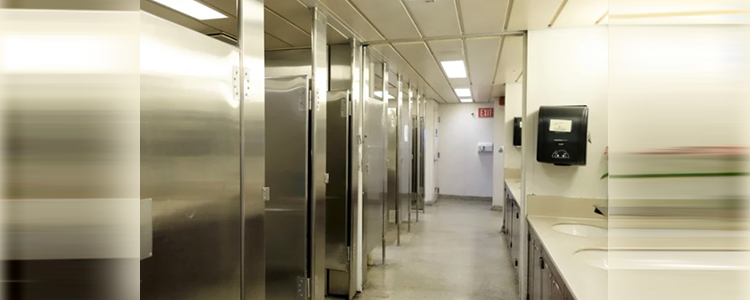— by Susan McBain, Orcas Issues reporter —
The Orcas Island Health Care District (OIHCD) commissioners received an in-person briefing on results of the recent survey of community health care preferences from Steve Smith of Madrona Voices, which did the survey. The commissioners also made progress on agreements with Orcas Family Health Center (OFHC) and the UW Neighborhood Clinic (UW) concerning acute and after-hours care, and on contract negotiations with the two clinics.
According to Smith, more than 600 people have taken the survey to date. Among the results:
• There is overwhelming support for acute-care services in the form of a triage nurse and access to a medical provider during clinic hours.
• There is also overwhelming support for the same acute-care services after hours.
• There is a stark difference in satisfaction levels with the two primary clinics. Patients of OFHC are much more satisfied than are UW patients.
• A majority of respondents favored increased clinic access, such as evening or Saturday open hours.
A summary of results to date is posted at www.madronavoices.com. The survey will be open through Sept. 27; those wishing to take it can sign up at the same web site (scroll to the bottom of the page).
OIHCD’s After-Hours Care Work Group adopted a proposal for consideration by OFHC concerning after-hours services and compensation. A similar proposal for UW consideration was adopted at last week’s meeting. OFHC providers already see any patient in person at the clinic if medically appropriate, whether during or after regular clinic hours, and UW managers are meeting with their providers to be sure that they all are willing to do the same. Providers at both clinics would receive compensation for seeing patients after hours if these proposals are accepted.
Although both clinics have established productivity metrics that are in line with professional standards, the commissioners felt that OFHC’s patient satisfaction metrics need improvement and that UW’s system for measuring patient satisfaction needs more clarity. The commissioners intend to include development of better metrics in this area as a priority in both contracts. They also intend to require direct communications with providers for EMTs in emergency situations and participation in regular review meetings for cases involving EMS. The commissioners acknowledged that the first contracts with the clinics will not include everything they would like to see, but that the contract periods will serve as trial runs in an ongoing process. They expect their contracts with both clinics to extend to at least December 2019.
Finally, Commissioner Richard Fralick stressed the urgency of reaching decisions on the budget. The budget hearing is scheduled for Nov. 6, so they must finalize the budget for the public by Oct. 23 and have preliminary figures by Oct. 2. While good estimates for the budget amounts will be available, some contingency funding may need to be built into the overall numbers to allow for surprises.
The second Town Hall is scheduled for Sept. 20, 6-8 p.m. at the Fire Hall. The next regular meeting of the OIHCD commissioners will be Oct. 2, 4 p.m., also at the Fire Hall.
**If you are reading theOrcasonian for free, thank your fellow islanders. If you would like to support theOrcasonian CLICK HERE to set your modestly-priced, voluntary subscription. Otherwise, no worries; we’re happy to share with you.**








A comment about the Madrona Voices’ disparity between the 2 clinic’s satisfaction results.
-A few “they said” comments seemed to be pointed at a major difficulty in communication at the UW clinic: setting appointments, filling prescriptions.
UW doesn’t make it easy to know when we’re calling the local clinic or when it gets shunted to the general dispatcher. I urge them to clarify and simplify the instructions.
-OFHC’s call-in, appointment protocol is familiar to their patients…therefore no big complaints.
I’d like to see the specific “unsatisfactory” comments.
My experience with the UW Medicine Clinic, as far as physician satisfaction goes, is better than ever.
It may be just a glitch in the new UW set-up….or it may be the way UW views their clients. I worked for UW for enough years to believe that clients are not a top priority. When I go to OFHC I feel like their top priority…It makes a world of difference.
As a research professional with experience in survey design and implementation, I’d like to know if this survey is truly representative of the Orcas population. In recalling similar work done for the EPRC’s visioneering process some months back, it became evident that certain segments of the population were under-represented, including lower-income groups and those who rent. If that is true for this survey, that would be a critical miss as health care policy must address the concerns of all groups, especially those who are less able financially and whose needs might not be adequately addressed if their voices are not heard.
It sounds that are younger population is letting the older folks do the talking. So many of us will probably be gone
in 20 years. It will be our input that makes an impact in the near future but taking a survey is an easy way to hear the younger voices.